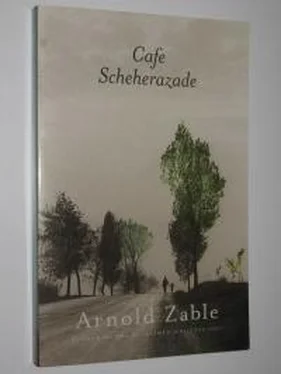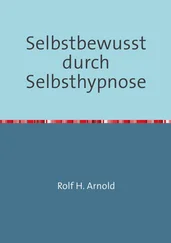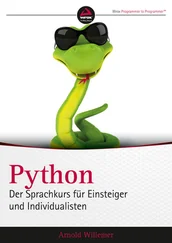Arnold Zable - Cafe Scheherazade
Здесь есть возможность читать онлайн «Arnold Zable - Cafe Scheherazade» весь текст электронной книги совершенно бесплатно (целиком полную версию без сокращений). В некоторых случаях можно слушать аудио, скачать через торрент в формате fb2 и присутствует краткое содержание. Город: Melbourne, Год выпуска: 2001, Издательство: Text Publishing Company, Жанр: Проза, на английском языке. Описание произведения, (предисловие) а так же отзывы посетителей доступны на портале библиотеки ЛибКат.
- Название:Cafe Scheherazade
- Автор:
- Издательство:Text Publishing Company
- Жанр:
- Год:2001
- Город:Melbourne
- ISBN:нет данных
- Рейтинг книги:4 / 5. Голосов: 1
-
Избранное:Добавить в избранное
- Отзывы:
-
Ваша оценка:
- 80
- 1
- 2
- 3
- 4
- 5
Cafe Scheherazade: краткое содержание, описание и аннотация
Предлагаем к чтению аннотацию, описание, краткое содержание или предисловие (зависит от того, что написал сам автор книги «Cafe Scheherazade»). Если вы не нашли необходимую информацию о книге — напишите в комментариях, мы постараемся отыскать её.
Cafe Scheherazade — читать онлайн бесплатно полную книгу (весь текст) целиком
Ниже представлен текст книги, разбитый по страницам. Система сохранения места последней прочитанной страницы, позволяет с удобством читать онлайн бесплатно книгу «Cafe Scheherazade», без необходимости каждый раз заново искать на чём Вы остановились. Поставьте закладку, и сможете в любой момент перейти на страницу, на которой закончили чтение.
Интервал:
Закладка:
They had journeyed by foot, on rail, by riverboat or automobile.
They had dodged authorities, bribed officials, paid exit taxes, obtained visas by means fair or foul. They had crossed mountains, stumbled upon detours, rescued themselves from cul-de-sacs. They had grasped every slim chance to move closer 117 to the one destination on earth where entrance papers were still not required. Until, at long last, they awoke to find themselves drifting along the Whangpoo towards the Shanghai river-port.
Like Zalman, many of them had been greeted by relief workers who sent them on their way across Garden Bridge, to their assigned places within an array of converted warehouses, factories, boarding houses and terraced cottages clinging to shabby lanes.
They spent their first months in partitioned rooms crowded with double bunks, inhaling the damp night air or huddling under blankets to ward off the unexpected winter cold. Theirs was a fragile haven, built upon charity and foundations of blood; but it was a haven, nevertheless.
Yet, for Zalman, Shanghai remained a place of despair. This was the feeling that took hold of him as soon as he entered Hongkew.
It was a thought that was to become an obsession during his fouryear stay. More than half a century later all that remains are a string of images, random almost, punctuated by a number of crucial dates that marked the gradual erosion of whatever optimism Zalman still possessed.
At first he lived in a warehouse reserved for single men. Later he moved in with a family of three, from Warsaw-Hadassah, Yasha and their only son, twelve-year-old Chaim-who had managed to stay together on the entire journey from Vilna to Shanghai.
They lived in a windowless room in Hongkew, separated from adjoining cubicles by plywood partitions and curtains suspended from bamboo poles. Through the slim partitions 118 could be heard the clatter of dishes, the shrill voices of couples arguing, the sounds of love-making, the echo of footsteps on the rickety wooden stairs. Seeping through the crevices came the smell of coal dust, of cinders and burnt straw, of fried foods and rancid oil, billowing from primitive stoves which provided just enough sustenance for the slum-dwellers to survive.
And, for a while, some of them thrived. The refugees moved freely in and out of the international and French concessions which still remained in European hands. Zalman found work in the offices of a Russian firm trading in furs. Chinese labourers, the universal underclass, salted weasel skins and mink. The treated furs were stored in warehouses for future export. Zalman coordinated the shipments, kept accounts and, when there was nothing to do, which was often enough, he would rest his feet on the desk, light a cigarette and lean back in his chair. Or he would lock the door behind him and stroll out onto the streets.
War-time Shanghai was a city sustained by speculation and wheeler-dealing, gambling and black marketeering. Shanghai was living on borrowed time.
"You could feel it," says Zalman. "The city was unhinged. There were even buildings rising from concrete rafts which, in turn, floated on mud flats. In the side streets, abandoned children covered in sores ran in packs. Beggars tugged at your sleeves. I saw the desperation in their eyes. Those who were making a living hurried by. They did not look. They did not wish to see. Those well-off snuggled back in their cars on their way to the cabarets and private clubs.
119
"But for some reason it has been my fate to detect the destitution beneath the gaiety; to be drawn towards it, to walk through it; to turn into Blood Alley, in the French concession, where drunken sailors staggered after streetwalkers. The sailors roamed the city in gangs. They crowded into dance halls in pursuit of `sing-song girls`. They drank and made merry, and lived each day as if it was their last. Yet to me they seemed like _dybbuks, lost spirits in search of a warm body to possess so far from home.
"As for Hongkew, it was a carnival of dybbuks. I wandered its streets, to and from my place of work. We were a kingdom of dung beetles, scurrying about, doing what we could to survive; and
Hongkew was our dung heap. I would walk past Chinese families who slept in vacant lots. I stepped over dead babies wrapped in newspapers or bamboo mats. The morning air was permeated with the smell of our night shit dripping from sewerage tanks. Porters groaned as they hauled their carts. Women hurried to work with babies tied to their backs.
"All the while, we continued to dream the dream of the displaced.
A dream which stole through the narrow alleys of Hongkew in the early hours, when the noise subsided, and a shallow sleep overtook us: a dream of horizons and ports, of ample decks fanned by sea breezes.
"The dreamers leaned against the rails. In their hands glittered the longed-for treasure, a visa to new worlds. They were sailing towards sanctuaries where the streets flowed with freedom. And they awoke to their dank cubicles, their crowded 120 dormitories, and the rising cacophony of another futureless day."
The cold rains descended, the north winds took hold and, in the early hours of 8 December 1941, Japanese planes attacked Pearl
Harbor. In the pre-dawn darkness Japanese troops lined Shanghai's riverside boulevard and launched an assault upon the sole US naval vessel, moored mid-river. They opened fire on the Royal
Navy gunboat, the HMS Peterel, anchored further upstream.
Outnumbered on all sides, the boat sank in flames. The river glowed in its after-light. Some of the crew were swept downstream as they swam for the shore, where they were captured, and ferried to the infamous Ward Road jail.
At dawn a squadron of planes released leaflets with the news that "an unfortunate state of war has come about between Japan and the
Allies. Do not panic."
As the Year of the Serpent drew to an end the refugees of
Shanghai were too weary to panic. There was no longer any place upon earth to which they could run. The international concessions had fallen into Japanese hands. The prized city was firmly under their command.
During 1942 the refugees of Shanghai lived in limbo. Their fates were determined according to rapidly shifting definitions of nationality. Those with British, American or French passports were driven out of the city into internment camps. Russian emigres remained in the former concessions, free to 121 work in businesses now transferred into Japanese control. And those who had, at first, escaped definition, those categorised as stateless, awoke on 18 February 1943 to radio bulletins proclaiming the establishment of a ghetto, in a "Designated
District" within Hongkew.
Wall posters echoed the news. All Polish, Austrian, Czech and
German Jews who had arrived in Shanghai since 1937 had until 18
May to move into a forty-block area. Their movements were now monitored by Japanese troops, Sikh police, and a patrol of sentries drafted from the ghetto inmates.
Zalman spent his nights with Hadassah, Yasha and Chaim. They played chess and draughts, reminisced about Warsaw, shared their meagre rations of food. In the mornings, Zalman would leave his cramped quarters, descend the stairs, and move out into the streets of Hongkew. He returned to his incessant walking; and he knew what he was looking for: those crevices of solitude he had discovered during his walks in Kobe.
In the Shanghai of 1943 such moments were all but impossible to find. Japanese officers strutted about with the arrogant air that characterises occupying forces. The order which had impressed
Zalman in Kobe gave way to random checks and indiscriminate beatings. A system of passes restricted movement to and from the ghetto gates. The streets of Hongkew teemed with children fossicking through rubble. Typhus and cholera, beriberi and dysentery claimed many lives. Others died of hunger, heat exhaustion and despair while those without work sat day after day in ghetto coffee shops and played cards.
Читать дальшеИнтервал:
Закладка:
Похожие книги на «Cafe Scheherazade»
Представляем Вашему вниманию похожие книги на «Cafe Scheherazade» списком для выбора. Мы отобрали схожую по названию и смыслу литературу в надежде предоставить читателям больше вариантов отыскать новые, интересные, ещё непрочитанные произведения.
Обсуждение, отзывы о книге «Cafe Scheherazade» и просто собственные мнения читателей. Оставьте ваши комментарии, напишите, что Вы думаете о произведении, его смысле или главных героях. Укажите что конкретно понравилось, а что нет, и почему Вы так считаете.












